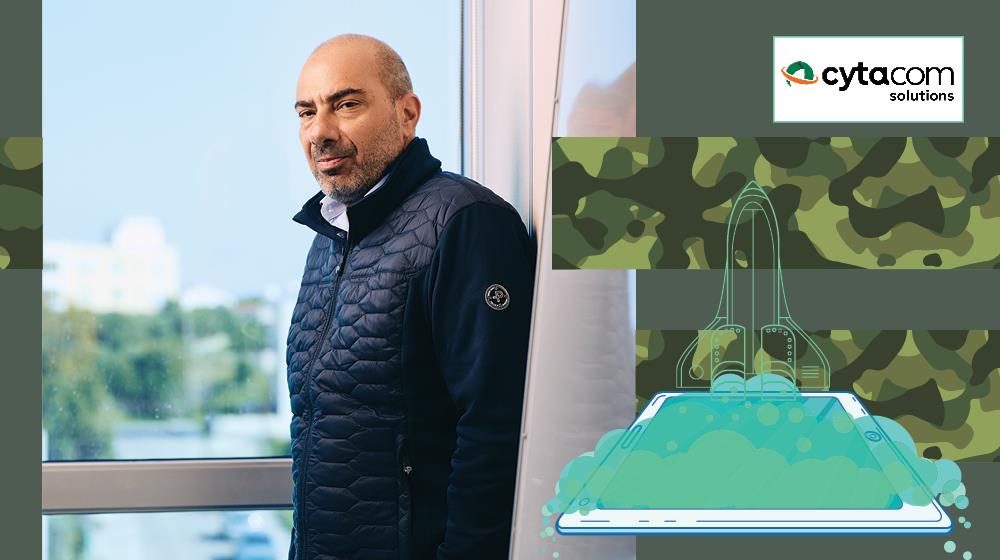Established in 2001, Cytacom Solutions Ltd, a subsidiary of Cyta, delivers high-level services to the Ministry of Defence and other mission-critical customers in Cyprus.
Cytacom holds all the necessary credentials and certifications for managing classified data and projects and has been a member of the Cyprus Association of Research and Innovation Enterprises (CARIE) since last year.
Within the Cyprus defence industry cluster, Cytacom contributes its expertise in integrating innovative solutions, complementing startups with essential skillsets to accelerate their progress and achieve their objectives more effectively.
Angelos Kountouris, Managing Director, Cytacom Solutions Ltd recently talked to GOLD magazine about the company and the wider defence sector in Cyprus and internationally.
Our part of the world has long been defined by conflict and uncertainty. Why do you believe that it has now become important for Cyprus to invest in the defence sector?
The ongoing war in Ukraine has reminded everybody in the EU why developing a defence industry is critical, not only for Cyprus but also for the whole bloc. Our country’s strategic location on the EU’s southeastern border makes it a key player in regional security. Enhancing its defence capabilities helps Cyprus maintain stability and control over important shipping and flight routes. Furthermore, as a nation under constant threats from neighbouring countries, Cyprus places great emphasis on maintaining a robust defence system to protect its sovereignty and territorial integrity.
While European defence R&D spending increased significantly – it reached €11 billion in 2023, more than double the amount spent in 2016 – the US and China still outspend the EU. How does this disparity impact your ability to innovate and compete on a global scale? Are there any other structural issues on a European level that need to be addressed?
Through cooperation among the individual countries, the EU can outperform the US and China, provided that there is a EU central mechanism driving R&D in every single EU nation.
On a local level, does the relatively small size of Cyprus’ defence cluster present challenges in competing with larger ecosystems or are there unique strengths you can leverage?
Cyprus’ newly formed defence sector includes around 30 innovative technology companies that design and produce dual-use products for both the military and civilian sectors. However, the scarcity of human resources is the single biggest challenge in Cyprus. On the other hand, Cyprus can attract talent from neighbouring countries. The local defence industry can also significantly contribute to the economy by creating jobs, fostering innovation and increasing exports.
Cyprus is strengthening its defence ties with nations like the US and France and aims to allocate 2% of its GDP to defence spending. Has this impacted your work? How can Cyprus become a key player in Europe’s defence ecosystem?
While our work has not been impacted by these changes, by developing its defence industry, Cyprus can strengthen its position within the European Union’s defence cluster and initiatives. This includes participating in European defence programmes and benefiting from EU investments aimed at enhancing defence capabilities across member states. Finally, investing in the defence industry promotes technological innovation and self-sufficiency. This can lead to advancements in various fields, including unmanned systems, electronic warfare and cybersecurity, where Cyprus can provide critical elements.
Finally, as drones, robotics and AI take centre stage in the theatre of modern warfare, what do you see as the next defining innovation?
The next defining innovation will be protecting assets in space, such as satellites.
This interview first appeared in the February edition of GOLD magazine. Click here to view it.









